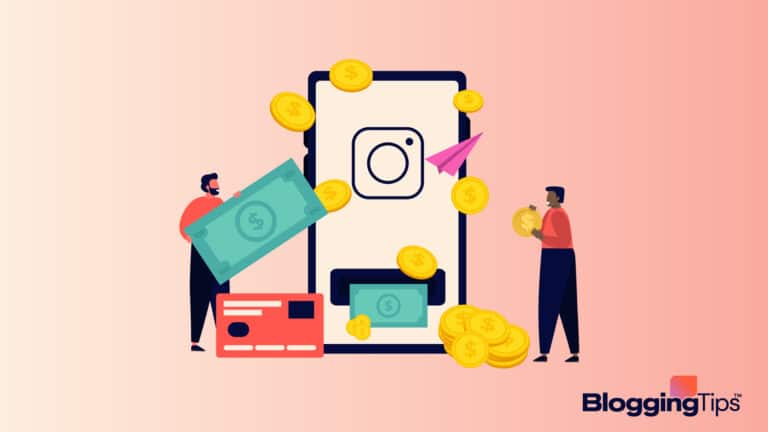Do you find affiliate marketing to be a lucrative income opportunity?
Done right; it can earn you more than a passive income. You don’t even need to build, run, or manage a website.
While having a website can make your marketing effort much more convenient, many affiliate marketing programs approve affiliates without a website.
All you need is a strategy of sending referrals to your sponsor’s website and the patience and skills to implement that strategy.
So, in today’s post, let’s learn about the ways and strategies you can utilize for conducting affiliate marketing without a website.
Can You Do Affiliate Marketing Without a Website?
You can do affiliate marketing without having a website. As long as you can send qualified referrals to your sponsor’s website, you can earn an income from affiliate marketing.
Whether you build your audience with a website or use other mediums is up to you.
There is a misconception that having a website is mandatory for affiliate marketing. In reality, many top affiliate marketing programs, including Amazon Associates, eBay Partner Network, Rakuten, etc., don’t require affiliate marketers to have a website. BestBuy also has an affiliate program that doesn’t require a website.
Take Amazon Associates as an example. It is a highly profitable affiliate partnership program with a massive market share in the affiliate marketing industry but doesn’t require a website.
Instead, you must refer three qualifying sales through your affiliate links within the first 180 days of signing up for the program for your application to be reviewed.
After that, however, you will need more things for your application to pass the review process.
How Do Affiliate Marketers Make Money Without a Website?
Affiliate marketers who don’t have a website make money the same way affiliate marketers with a website make money – by directing consistent traffic toward a paid referral link and encouraging them to perform an action.
When the visitor completes the action, the marketer earns an affiliate commission.
The marketer works like glue between a merchant or business and their potential customers. The affiliate marketer signs up to promote specific products or services before presenting the affiliate offer to the right customer at the right time.
Many affiliates use a website to promote affiliate links, while others use one or more marketing channels.
Once a person takes up the offer and conducts the desired action by visiting the affiliate link, the marketer generates an affiliate income.
It often involves guiding someone to buy a product, subscribe to a service, sign up for an email marketing campaign, and whatnot. As long as the referral can be traced back to your affiliate account, you should make some money from affiliate commissions.
Without a website, you can promote content on social media, write a guest blog post, upload content to a YouTube channel, and so on.
Some affiliate marketing programs even allow running Google ads or pay-per-qualified phone calls. However, which marketing tactic and platform you can use depends on the particular affiliate network you partner with.
Not all affiliate marketing programs accept marketers without a website. Therefore, you must find the ones that don’t require website ownership for affiliate marketing.
Fortunately, the best affiliate programs usually offer great flexibility without needing a website.
For instance, Canva has a rewarding affiliate program for anyone with a solid and engaged digital presence in the design niche.
What Do You Need for Affiliate Marketing Without a Website?
The affiliate marketing process is similar for affiliate marketers with or without a website, except for finding an alternative way of proving your ability and credibility.
How you would do that depends on your preferred affiliate program. You may also need additional research to find an affiliate business that doesn’t require website ownership.
In general, you can start affiliate marketing with the following:
- Adequate Time Dedicated to It: Generating and promoting affiliate links requires consistent time allocation. You will also need a lot of patience to build your audience and generate enough traffic to earn substantial affiliate revenue.
- Ways to Prove Your Credibility: Depending on the affiliate program, you may need to provide personal and professional details, including your photo ID, tax information, affiliate business license, etc. You should also have a valid bank account or another payment system to receive money online.
- A Niche or Target Audience: You can generate an income without targeting a specific niche or group of people with similar interests. However, finding a niche helps to build credibility and attract the right people for the right product. A target audience in an affiliate niche is also vital for some top-paying CPA programs.
- Some Ways of Driving Traffic to Your Links: Affiliate markets mostly earn based on the amount of qualifying referrals they send to the advertiser’s landing page. So, you must find a reliable way to drive traffic to your affiliate links besides a website.
Once ready, you can apply to different affiliate marketing networks in your niche and generate affiliate income.
You will need influencer marketing knowledge and a capable device connected to the internet to conduct most of your affiliate marketing activities.
How To Drive Traffic to Affiliate Links Without a Website?
Digital marketing depends on various platforms to promote products and services online. You can also promote your affiliate product, service, or other incentivized activities using one or a combination of these platforms.
Some offline marketing tactics could also prove beneficial for beginners. For example, you can recommend an item to your friends and colleagues. Earning commission through telemarketing is also popular among some successful affiliate marketers.
Your affiliate program, skills, and preference should determine the best marketing channel for your purpose.
The effectiveness of your effort will depend on the plan and execution, with the affiliate revenue dependent on the number of qualified affiliate sales or other desired activities.
Promote on Different Social Media Platforms
It’s been a while since social media has become vital for a successful affiliate marketer. After all, it is excellent for meeting and connecting with new people and building credible relationships worldwide.
The main advantage of promoting affiliate links on social media is that most people use at least one regularly.
First, however, you should plan around your affiliate marketing niche and find the right platform to find your audience.
For example, if affiliate programs for makeup products are your niche, you may find most of your potential customers on Instagram or Pinterest.
While Facebook is also frequented by people looking for makeup inspirations, posting on LinkedIn may not be a good strategy for your affiliate business.
Like influencer marketing, you should also invest time building a loyal following by posting quality content. Look for the community guidelines specific to each social media platform so that your content doesn’t get removed.
Posting too much sales content is also a no-no. Let’s check the following YouTube video to find your social media strategy for affiliate marketing:
Utilize Popular Content Publishing Platforms
Ever watched a video on YouTube where the vlogger recommends clicking a link from the description?
For example, it could be an affiliate link to buy a course, download an app, or complete a survey. The vlogger will earn an affiliate commission if you click the link and complete the actionable steps.
YouTube is an excellent content publishing platform for affiliates. Millions of people search for essential tips, tutorials, and entertainment daily on the video-sharing platform.
You can create a YouTube channel and turn it into an affiliate market hub by creating valuable content and strategically inserting affiliate links.
It doesn’t necessarily have to be video content. Content publishing platforms like Medium enable writers to publish blog posts through their account or a publisher. You can include affiliate links to your bio description or in the blog post within certain limits.
Alternatively, writing guest posts for authoritative publishers like Forbes, Bloomberg, Inc. Magazine, etc., generates quality leads.
Again, you must find a few platforms populated by your target audience in your niche. You should also be comfortable with the content creation process and the editorial guidelines specific to these publishing platforms.
Participate in Online Forums and Communities
Even a decade or so ago, different online forums used to dominate the internet. People frequently visit these sites to exchange advice and tips regarding specific subjects, issues, or problems.
Moreover, as a meeting point for online communities, these forums and websites offered many opportunities to promote affiliate links.
Although social media have become the dominating force for online communities, there are still some trendy forums.
Using these platforms, you can answer questions, ask for advice, and offer tips and comments while promoting your affiliate links.
Some of today’s most popular online forums are:
- Quora
- Imgur
- GitHub
Some of these forums are best for targeting a specific niche, so you should learn their types and functions first. You should also be careful about the terms and conditions regarding promoting external links.
Most importantly, you must not spam people’s posts randomly with your affiliate links to make it a success.
Promote Using Pay-per-Click or Impression Ads
Pay-per-click or pay-per-impression ads can be excellent for boosting your affiliate revenue.
Of course, it costs some money, but it can be rewarding with a big enough affiliate commission from some products and services.
You can run search engine or social media ad campaigns to reach your target audience quickly and effectively.
Google Ads and Facebook Ads are some of the most effective platforms which can target audiences in your specific niche. You can also find particular keywords using tools like the Google AdWords Keyword Planner to improve your ads performance.
While social media advertising doesn’t require a website, you must provide a landing page for running Google ads.
You should also find affiliate programs that allow PPC marketing and offer a large enough cut to cover the cost.
Explore whether your affiliate niche would benefit from PPC marketing before investing in it. To give you a headstart, luxury niches like travel bookings and B2B services might be the best for these promotions.
Insert Links in Your Emails and Digital Books
If you have an email list with people in your affiliate niche, you can easily send emails with your referral links.
Otherwise, you can leverage some experts in email marketing to buy ad placements in their email newsletters or promotions.
With a valuable affiliate offer that is useful for their subscribers, you may not even need to pay to include your affiliate links.
Another similar tactic is publishing eBooks with strategic positioning of your affiliate links. Of course, the book must have quality content for people to buy it and heed its recommendations.
You can also offer the book for free or in exchange for an email address, which can help you build an email marketing list for further promotion.
Creating a publishing eBooks can sound daunting. However, you can substantially minimize the effort and still make an affiliate profit with some clever techniques. Check out the following YouTube video for detailed guidance:
Collaborating with successful authors and publishers in your niche can also be a helpful tactic for eBook promotion.
First, you must convince the author to include your link, which may or may not cost money. However, the initial expense might be worth it as established publishers already have a loyal reader base.
Frequently Asked Questions
Do Affiliate Marketers Need a Landing Page?
While a successful affiliate marketer doesn’t rely on any singular channel, having a landing page is often essential for content and PPC marketing-focused affiliate marketing strategies. It can also boost your affiliate conversion with strategic CTA buttons.
However, a landing page is optional to start your affiliate marketing journey.
Why Should You Consider a Website for Affiliate Marketing?
Although a website isn’t an absolute must for many rewarding affiliate marketing programs, it offers more freedom and opportunities for the affiliate marketer to drive more sales.
It also helps to build credibility among consumers and advertisers. Building a website should also open up more affiliate networks for collaboration.
Wrapping Up
Affiliate marketing isn’t easy, but it is an excellent way to earn money online. You can also remove some burdens by marketing links without an affiliate website.
Simply choose a few marketing channels you are good at and promote your affiliate links.
You can find most information regarding affiliate marketing without a website in my post. I also detail the steps for many of these strategies in separate posts. Check out a related post or comment for further guidance.
I would also appreciate it if you shared my blog with budding affiliate marketers online.







